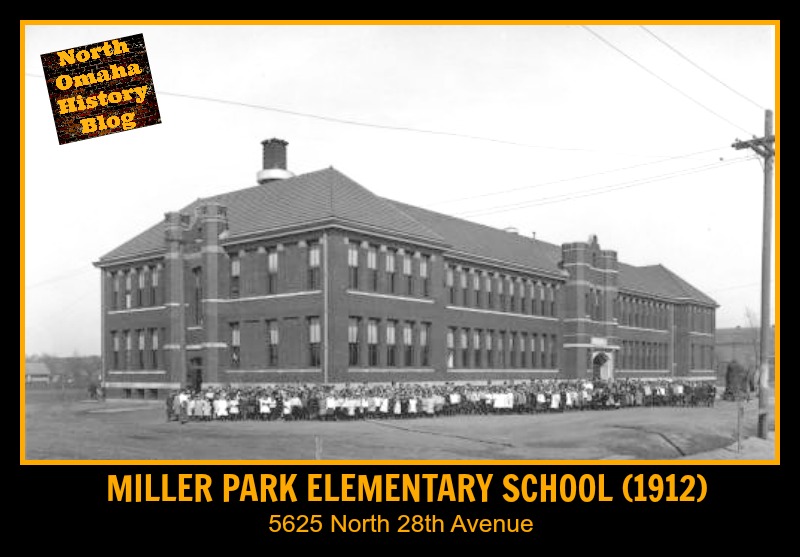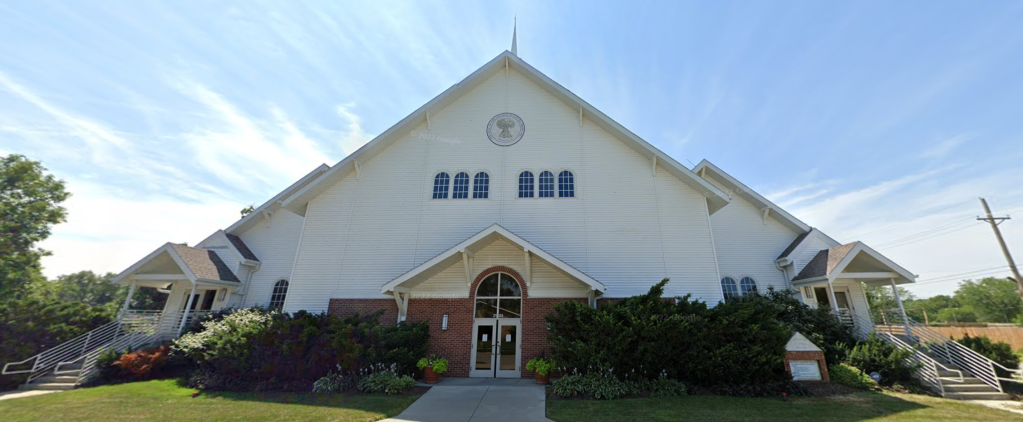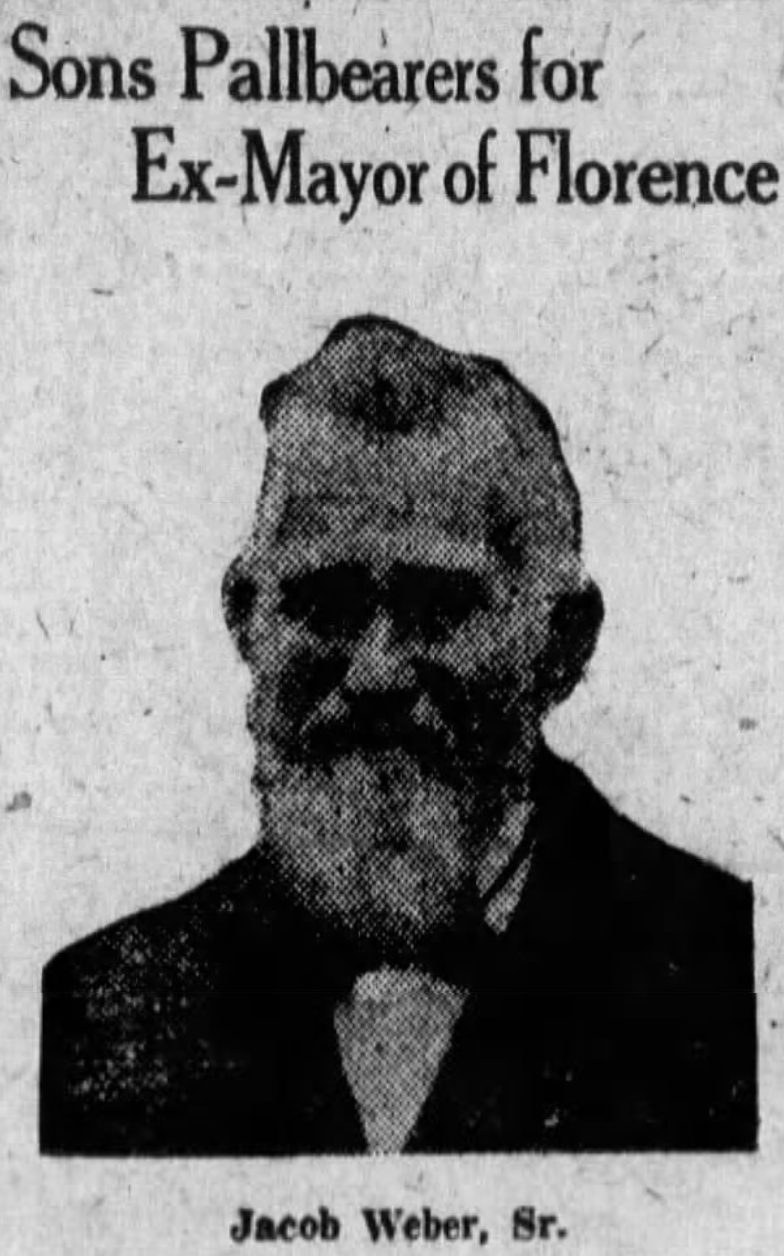In the 1890s, Omaha’s African American community began growing. The Union Pacific paid higher salaries for Pullman porters who moved to the city; the first Black professionals including lawyers and doctors became established; Black politicians were elected to office; and more people were moving to Omaha from the South. They brought culture with them, and some names jump out from history. This is a biography of a prodigal African American pianist and teacher called George T. McPherson, but actually named George Franklin McPherson (1864-c1916).
Early Life

…the wonder of the musical age
–The Monitor, July 17, 1915
Born in Marietta, Ohio, on July 4, 1864, McPherson’s parents were enslaved when he was born. Sent to an orphanage at age 9, he was adopted by a wealthy white Abolitionist soon after. After learning the basics of piano he became the organist of the Marietta First Congregational Church.
With support from a wealthy benefactor, in 1881 McPherson went to the Oberlin Academy of Music in Ohio, where he was the student of Edward Baxter Perry. He may have gone to the Boston Conservatory of Music, as well.
A late life newspaper feature on him said, “Within a few short years after he left Oberlin, McPherson was rated as an accomplished artist. He appeared before large and distinguished crowds in nearly every important city in the United States and Canada. Then he invaded Europe where his success continued. Before returning to America he played before several crowned heads of the continent.”
Apparently “Mac” was a savant, with a later report stating, “He is educated in seven different languages, each of which it is said he can converse fluently. His memory is remarkable. He can play the score for the overture of any prominent opera from memory. He is good at sight reading and improvising…”
Acknowledged as an expert two years later, when he was 19 years old McPherson joined the Original Nashville Students, a professional touring singing group. He was the pianist for the group from 1885 to 1888. After traveling Europe, in 1889 he moved to Omaha and became the city’s leading musical prodigy and virtuoso multi-instrumentalist performer and teacher.
Later declared “the leading pianist of the [African-American] race” by The Enterprise, a Black newspaper in Omaha, McPherson ran a music studio for the young students from the wealthiest white families in Omaha, as well as African American students. Performing regularly for formal African American events, newspaper reports regularly talked about him playing to crowds of 400 and 500 season after season for years. In 1900, a newspaper reported that on piano, “he could play by the hour almost anything called for – operas, popular music, classical music or dance music.”
Addressed as “Professor McPherson” in the media, McPherson was the first prominent black musician in Omaha. He lived in Florence in an era when it was restricted to whites only.
McPherson left Omaha and went to Chicago to perform at the 1893 World’s Columbian Exposition. Apparently while he was there he won several awards in competitions. Returning to Omaha, he was revealed to have fallen in love with a white woman in Omaha who wouldn’t become romantically involved with him. In 1900 he moved back to Chicago.
Mental Illness

Briefly committed to a mental asylum in Chicago, in 1902 McPherson was moved to Lincoln and confined in the Nebraska State Hospital for the Insane. After a few years he was transferred to Norfolk, and later to the Ingleside Hospital for the Insane in Hastings, Nebraska. Apparently mental illness was genetic in his family, as records from the latter institution said McPherson’s mother died in a similar facility in Ohio when he was young.

Surely aware of the opportunity they had, starting in 1915, the Nebraska State Medical Association had McPherson perform more than once for their annual sessions held at Ingleside.
“This man plays nothing but high grade classical music, which he does every day of his life in the large reception room of the hospital. He plays the most difficult pieces from the old masters by memory, yet so perfectly does he handle the keys that no criticism of his work has ever been made during his several years residence at the state institution by the many well-known musicians who have visited him, and for whom he always willingly entertains. In appearance he is neat and uses good language when discussing music. At other times he mumblings about nothing.”
Said of George McPherson Omaha World-Herald, July 11, 1916
In 1916, the institution’s main psychiatrist reported that McPherson would never recover, and h spent the rest of his life at Ingleside. In 1931, a newspaper interview said, “You can tell that ‘Mac’ isn’t just right by his conversation. He talks incoherently about more things — but not about music. He knows music. Without hesitation he can tell you the most intimate details about renowed artists and composers. Then he can turn to his piano and bring to life their compositions.” The article goes on to report on his jazz playing, and said “he doesn’t put his heart and soul into it. His jazz is ordinary at best, but his playing of such numbers as ‘Overture from William Tell’ is considered wonderful.”
“He is always ready to play for visitors as long as they want him, and he plays regularly in the orchestra.”
George McPherson died at the Lincoln Regional Center in October 1943.
Memorializing McPherson
Today there is no monument or memory of Professor McPherson, anywhere. He was buried at the Calvert Street Cemetery in Lincoln, and he gravesite has a numerical marker with no name on it. This once-bright beacon of culture and sophistication is almost entirely forgotten, denied his place in the city’s and state’s history.
You Might Like…
MY ARTICLES ABOUT THE HISTORY OF MUSIC IN NORTH OMAHA
PEOPLE: George T. McPherson | Dan Desdunes | Flora Pinkston | Jimmy Jewell, Sr. and Jimmy Jewell, Jr. | Jim Bell | Paul Allen, Sr. | Josiah “P.J.” Waddle | Frank “Red” Perkins | George Bryant
PLACES: 24th and Lake Historic District | Dreamland Ballroom | Carnation Ballroom | Stage II Lounge | Club Harlem | The Off Beat Club | King Solomon’s Mines | Allen’s Showcase | Druid Hall
EVENTS: Stone Soul Picnic | Emancipation Day & Juneteenth | Native Omahans Festival
Elsewhere Online
- “George McPherson” on findagrave.com
BONUS PICS!








Leave a comment